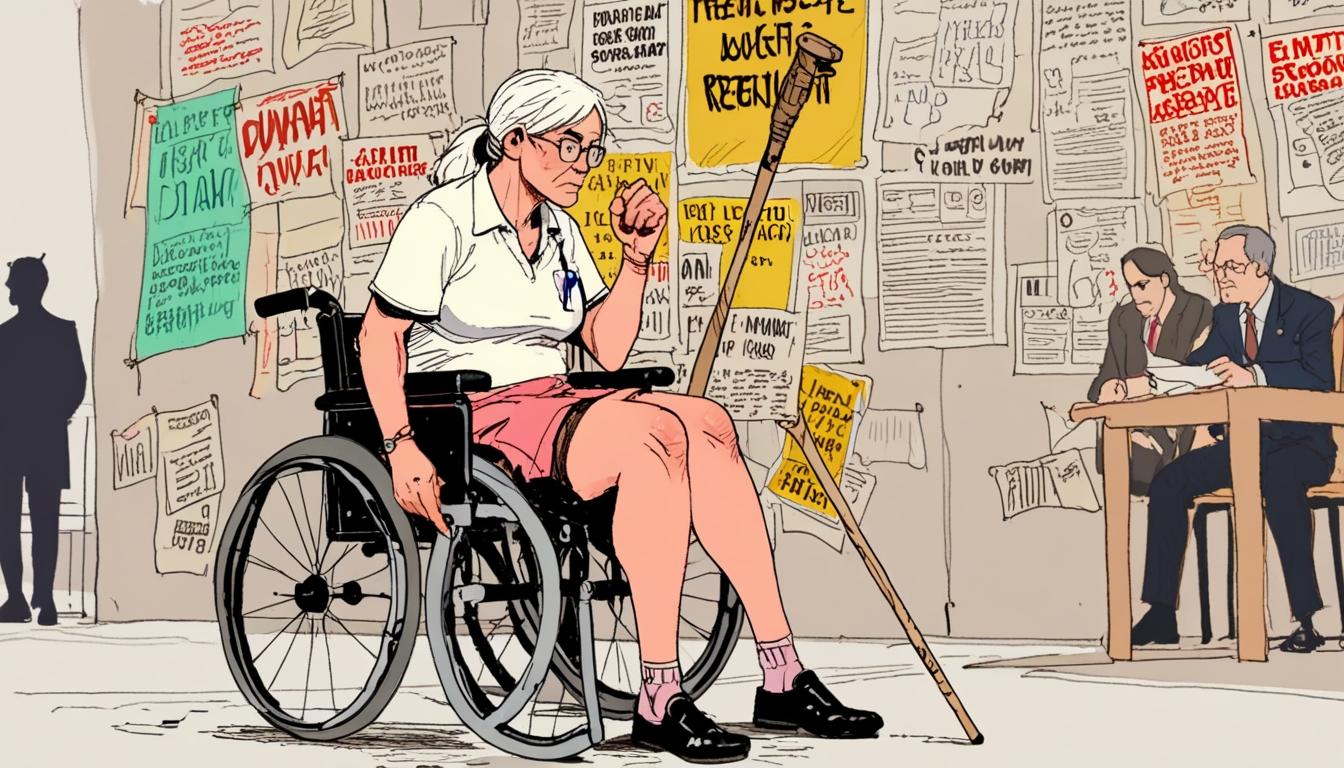Louise Kennedy-Dalby, a Fife SNP councillor, has shared her harrowing experience with disability benefit assessments, which left her in an ambulance after an excruciating evaluation. Diagnosed with Ehlers-Danlos Syndrome, a connective tissue disorder characterised by severe joint dislocations and pain, she found herself having to leave her job as a sports events manager due to her deteriorating health. This condition, which affects approximately one in 10,000 individuals, causes significant issues for those suffering from it, such as dislocated joints up to several times a week.
Speaking in council, Louise recounted her 2017 experience of undergoing a work capability assessment, which directly resulted in a dislocated knee and immense distress. “They ended up having to phone an ambulance for me,” she said. To her disbelief, after enduring this ordeal, she received a letter declining her application for benefits. “It was completely degrading,” she added, highlighting the emotional and physical toll such assessments can impose on vulnerable individuals.
Her story has resonated widely, prompting a unanimous, cross-party agreement within Fife Council to write to Prime Minister Sir Keir Starmer, voicing concerns over recent proposed reforms to disability benefits. The Labour Government aims to implement significant changes to Universal Credit and Personal Independence Payments (PIP), which have sparked fears that these reforms will disproportionately affect those grappling with severe and chronic conditions, making it harder for them to access vital financial support. The reforms are intended to save the government approximately £5 billion by 2030, while also aiming to incentivise greater workforce participation.
Despite being a strong advocate for work, Louise questioned how reducing benefits for those with debilitating conditions would aid their prospects of employment. “There are thousands of people like me and the vast majority do want to work,” she stated. Yet, the limitations imposed by their disabilities often mean that many struggle with daily tasks, let alone maintaining employment. Louise, a mother of three, emphasised the challenges she faces, such as being unable to lift her toddler and relying on a stick to walk.
The implications of the proposed benefits shake-up extend to Scotland, despite the devolution of certain welfare aspects. Social Justice Secretary Shirley-Anne Somerville has warned that these changes could lead to a £408 million reduction in funding from Westminster, potentially pushing an additional 250,000 people into poverty across the nation. As discussions unfold, the exact impact on affected individuals in Fife remains uncertain, though the local council has now committed to investigating how these reforms could strain their services and resources.
At the heart of this debate lies the vision of a fair and respectful social security system, as the Scottish Government strives to reform disability benefit assessments. Current proposals aim to eliminate the cycle of repeated assessments for those with chronic conditions, ensuring that assessments are conducted with dignity and respect. This new approach contrasts sharply with the concerns raised by individuals like Louise, who have experienced the system’s failings firsthand, often enduring humiliating evaluations simply to access support intended to assist them.
Louise's determination to advocate for individuals with disabilities is reflected in her ongoing role as a councillor, where she engages in various committees aimed at improving services in her community. Her experience underscores the urgent need for systemic reforms that recognise the real-life challenges facing those with disabilities, ensuring that financial assistance genuinely meets their needs and promotes independence rather than stigmatization. The situation calls for a critical reassessment of how disability benefits are allocated—one that prioritises empathy and understanding over bureaucratic efficiency.
As the UK Government contemplates these sweeping reforms, the voices of affected individuals like Louise serve as a crucial reminder of the human cost behind policy decisions. Their stories underscore the need for a compassionate approach towards disability benefits, affirming that no one should endure degradation in their pursuit of necessary support.
Reference Map
- Paragraphs 1, 2, 3, 4, 5, 6
- Paragraph 1
- Paragraph 1, 4
- Paragraph 5
- Paragraph 5
- Paragraph 3
- Paragraph 5
Source: Noah Wire Services
